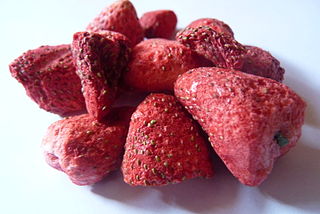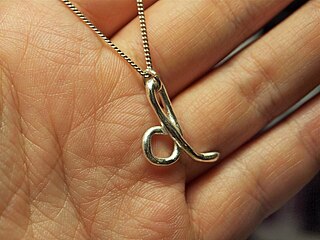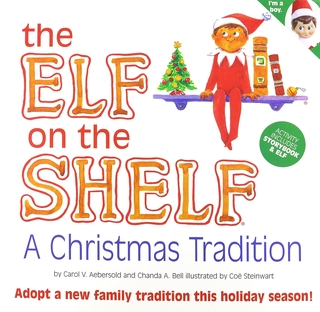
In the field of food processing, pasteurization is a process of food preservation in which packaged and unpacked foods are treated with mild heat, usually to less than 100 °C (212 °F), to eliminate pathogens and extend shelf life. Pasteurization either destroys or deactivates microorganisms and enzymes that contribute to food spoilage or the risk of disease, including vegetative bacteria, but most bacterial spores survive the process.
A turnkey, a turnkey project, or a turnkey operation is a type of project that is constructed so that it can be sold to any buyer as a completed product. This is contrasted with build to order, where the constructor builds an item to the buyer's exact specifications, or when an incomplete product is sold with the assumption that the buyer would complete it.

The Meal, Ready-to-Eat (MRE) is a self-contained individual United States military ration used by the United States Armed Forces and Department of Defense. It is intended for use by American service members in combat or field conditions where other food is not available. MREs have also been distributed to civilians as humanitarian daily rations during natural disasters and wars.

Shelf life is the length of time that a commodity may be stored without becoming unfit for use, consumption, or sale. In other words, it might refer to whether a commodity should no longer be on a pantry shelf, or no longer on a supermarket shelf. It applies to cosmetics, foods and beverages, medical devices, medicines, explosives, pharmaceutical drugs, chemicals, tyres, batteries, and many other perishable items. In some regions, an advisory best before, mandatory use by or freshness date is required on packaged perishable foods. The concept of expiration date is related but legally distinct in some jurisdictions.

Freeze drying, also known as lyophilization or cryodesiccation, is a low temperature dehydration process that involves freezing the product and lowering pressure, thereby removing the ice by sublimation. This is in contrast to dehydration by most conventional methods that evaporate water using heat.
Custom software is software that is developed specifically for some specific organization or other user. As such, it can be contrasted with the use of out-of-the-box software packages developed for the mass market, such as commercial off-the-shelf software, or existing free software.

Modified atmosphere packaging (MAP) is the practice of modifying the composition of the internal atmosphere of a package in order to improve the shelf life. The need for this technology for food arises from the short shelf life of food products such as meat, fish, poultry, and dairy in the presence of oxygen. In food, oxygen is readily available for lipid oxidation reactions. Oxygen also helps maintain high respiration rates of fresh produce, which contribute to shortened shelf life. From a microbiological aspect, oxygen encourages the growth of aerobic spoilage microorganisms. Therefore, the reduction of oxygen and its replacement with other gases can reduce or delay oxidation reactions and microbiological spoilage. Oxygen scavengers may also be used to reduce browning due to lipid oxidation by halting the auto-oxidative chemical process. Besides, MAP changes the gaseous atmosphere by incorporating different compositions of gases.

Metal clay is a crafting medium consisting of very small particles of metal such as silver, gold, bronze, or copper mixed with an organic binder and water for use in making jewelry, beads and small sculptures. Originating in Japan in 1990, metal clay can be shaped just like any soft clay, by hand or using molds. After drying, the clay can be fired in a variety of ways such as in a kiln, with a handheld gas torch, or on a gas stove, depending on the type of clay and the metal in it. The binder burns away, leaving the pure sintered metal. Shrinkage of between 8% and 30% occurs. Alloys such as bronze, sterling silver, and steel also are available.
Commercial-off-the-shelf or commercially available off-the-shelf (COTS) products are packaged or canned (ready-made) hardware or software, which are adapted aftermarket to the needs of the purchasing organization, rather than the commissioning of custom-made, or bespoke, solutions. A related term, Mil-COTS, refers to COTS products for use by the U.S. military.
The law in the United Kingdom on food information and labelling is multifaceted and is spread over many reforms and parliamentary acts. UK law is based on the relevant European Union rules, chiefly Regulation (EU) 1169/2011, which is implemented in the UK in the Food Information Regulations 2014, the Food Information (Wales) Regulations 2014, the Food Information (Scotland) Regulations 2014 and the Food Information Regulations 2014. Regulations apply to the labelling of goods pre-packaged for sale and to the provision of information regarding non-prepacked (loose) foods.
Government off-the-shelf (GOTS) is a term for software and hardware government products that are ready to use and which were created and are owned by a government agency.

Shelf-stable food is food of a type that can be safely stored at room temperature in a sealed container. This includes foods that would normally be stored refrigerated, but which have been processed so that they can be safely stored at room or ambient temperature for a usefully long shelf life.

The term fish processing refers to the processes associated with fish and fish products between the time fish are caught or harvested, and the time the final product is delivered to the customer. Although the term refers specifically to fish, in practice it is extended to cover any aquatic organisms harvested for commercial purposes, whether caught in wild fisheries or harvested from aquaculture or fish farming.

A vertical form fill sealing machine is a type of automated assembly-line product packaging system, commonly used in the packaging industry for food and many other products. Walter Zwoyer, the inventor of the technology, patented his idea for the VFFS machine in 1936 while working with the Henry Heide Candy Company. The machine constructs plastic bags and stand-up pouches out of a flat roll of film, fills them with product, and seals them. Both solids and liquids can be bagged.

The Elf on the Shelf: A Christmas Tradition is a 2005 American picture book for children, written by Carol Aebersold and her daughter Chanda Bell and illustrated by Coë Steinwart. The book tells a Christmas-themed story, written in rhyme, that explains how Santa Claus knows who is naughty and nice. It describes elves visiting children from Thanksgiving to Christmas Eve, after which they return to the North Pole until the next holiday season. The Elf on the Shelf comes in a keepsake box that features a hardbound picture book and a small scout elf. The story was inspired by a family tradition started by Carol Aebersold for her twin daughters, Chanda Bell and Christa Pitts, in Georgia.

Shelf-ready packaging (SRP) and retail-ready packaging (RRP) refers to the packaging of a product so that it is delivered to a retailer in packaging which is optimized for efficient stocking and sale.

An expiration date or expiry date is a previously determined date after which something should no longer be used, either by operation of law or by exceeding the anticipated shelf life for perishable goods. Expiration dates are applied to selected food products and to some other manufactured products like infant car seats where the age of the product may impact its safe use.

In Filipino cuisine, moron is a rice cake similar to suman. It is a native delicacy of the Waray people in the Eastern Visayas region of the Philippines, particularly in the area around Tacloban City in the province of Leyte and in Eastern Samar province. Other parts of the Philippines have their versions of it, however. In fact, the moron was adopted as one of Mambajao, Camiguin's locally produced products.

Case-ready meat, retail-ready meat, or pre-packaged meat refers to fresh meat that is processed and packaged at a central facility and delivered to the store ready to be put directly into the meat case.












